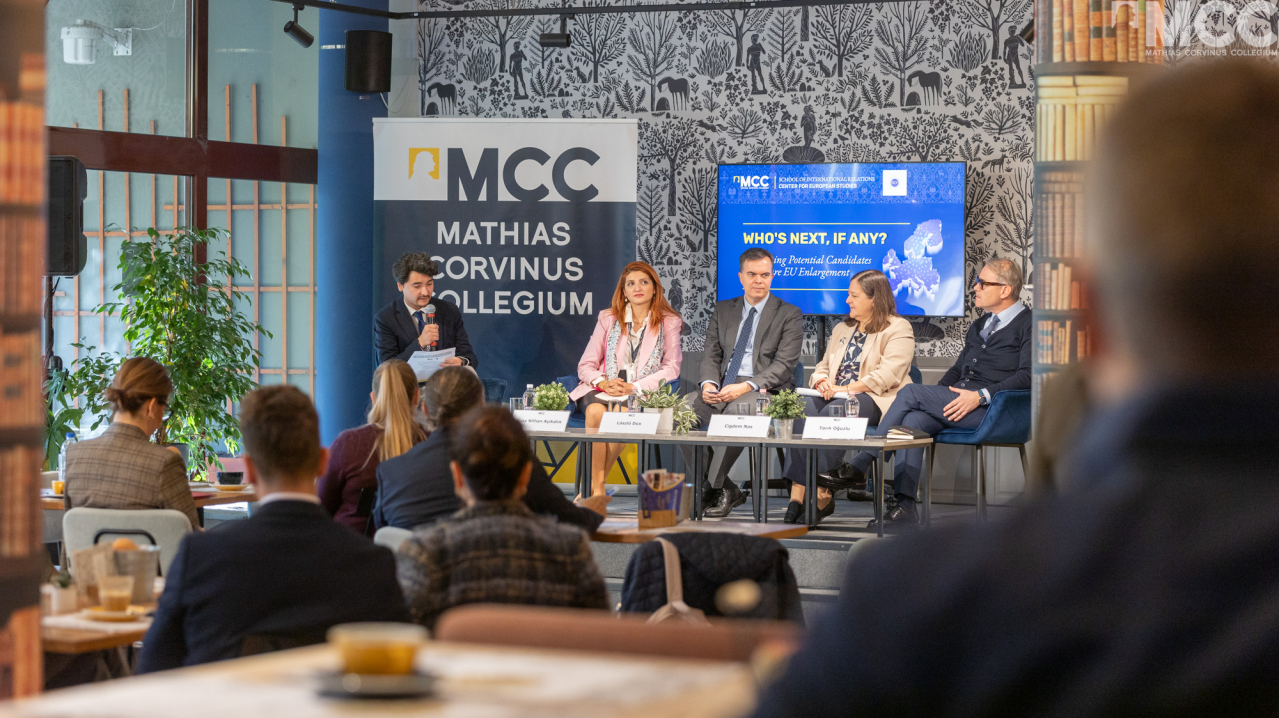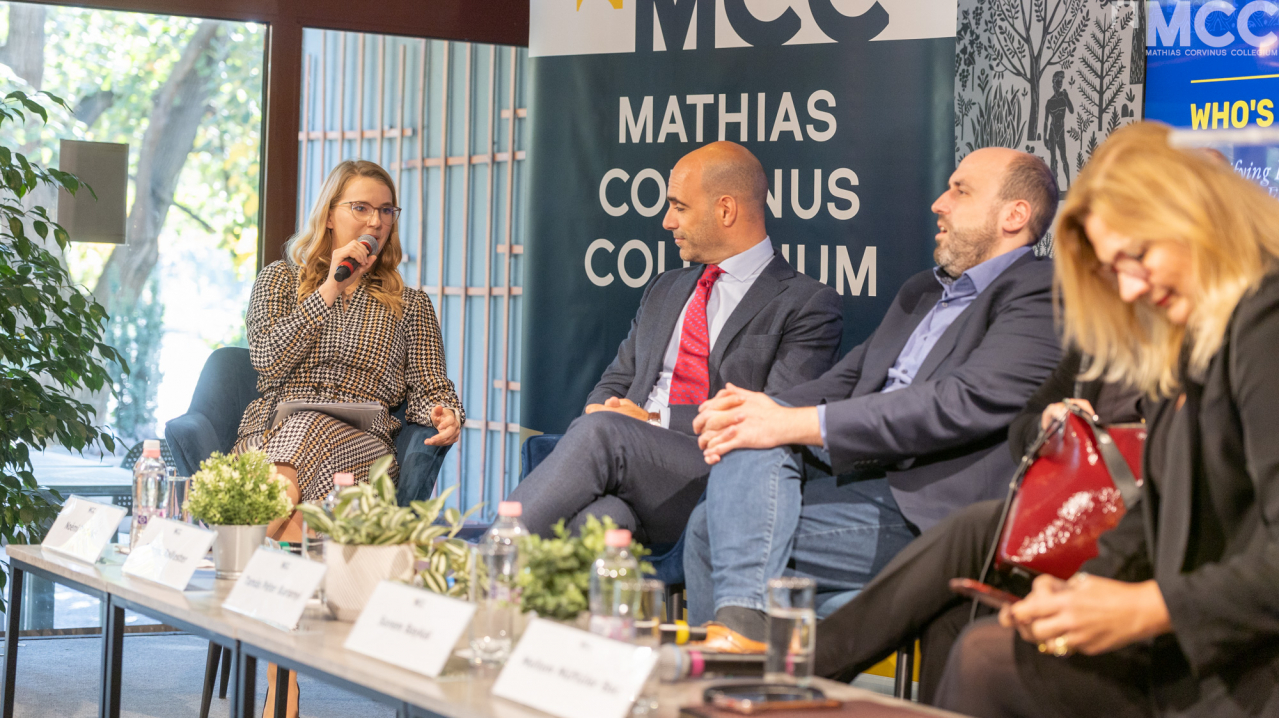Reading time: 3 minutes
This past Friday, MCC's Center for European Studies organized a captivating and thought-provoking conference titled “EU Merit-Based Enlargement: Utopian, Dystopian, or Simply Realistic?”. The event brought together prominent experts and intellectuals from Türkiye’s Economic Development Foundation (IKV), Hungary, and beyond to explore the future of EU enlargement and debate the challenges and opportunities surrounding the topic.
The event was officially opened by Rodrigo Ballester, Head of MCC's Center for European Studies, who emphasized the shared strategic vision between Hungary and Türkiye, highlighting common ground between the two nations. His remarks set the tone for a day of insightful discussions about the future of EU expansion.
Following Ballester, Ayhan Zeytinoğlu, President of the İKTİSADİ KALKINMA VAKFI (IKV), gave a passionate address, calling European integration “the most important achievement of the 21st century.” He reaffirmed the critical role of EU enlargement in securing Europe’s political and economic future.
Her Excellency C. Gülşen Karanis Ekşioğlu, Ambassador of the Republic of Türkiye to Hungary, delivered the third opening address. She underlined Türkiye’s position as the most senior candidate for EU membership, expressing optimism that Hungary's upcoming presidency of the European Council could advance Türkiye’s accession process.
The first panel delved into potential candidates for future EU enlargement. Şuay Nilhan Açıkalın, MCC's Visiting Fellow, Tarık Oğuzlu, Professor of International Relations and Dean of the Faculty of Science and Literature at Istanbul Aydin University, Laszlo Dux, Head of the EU Common Foreign and Security Policy and Enlargement Department at the Ministry of Foreign Affairs and Trade, and Cigdem Nas provided comprehensive discussions on the current state of the enlargement project. They analyzed the prospects of a merit-based accession process, reflecting on the opportunities and challenges it presents for both the EU and candidate countries.
In the second panel, moderated by Noémi Pálfalvi, Director of MCC's International Directorate, panelists Rodrigo Ballester, Sanem Baykal, Professor of EU Law at TOBB Economy and Technology University, Tamás Baranyi, Director for Strategy at Hungarian Institute of International Affairs and Meltem Müftüler Bac, Dean of Faculty of Arts and Social Sciences and Professor of International Relations and Jean Monnet chair at Sabanci University debated whether a multi-speed EU could effectively balance the diverse interests of member states. They discussed opt-outs on issues like migration and how such flexibility could preserve the unity of the EU while accommodating varying national priorities.
The conference provided a valuable platform for in-depth discussions on the future of EU enlargement, offering multiple perspectives on the merit-based accession process and the complexities surrounding it. The event highlighted the importance of continued dialogue on the evolving role of sovereignty, integration, and cooperation within the European Union.









